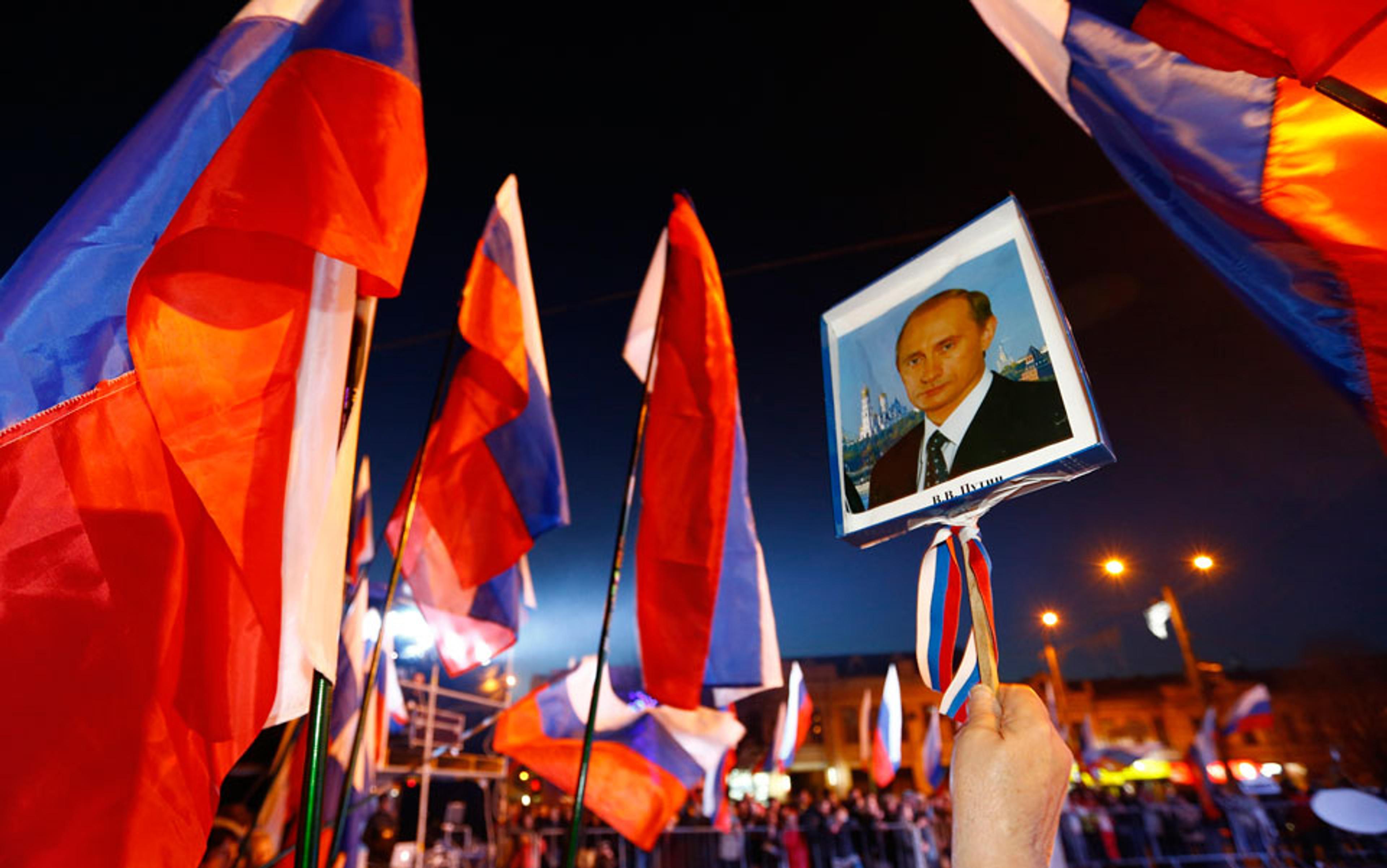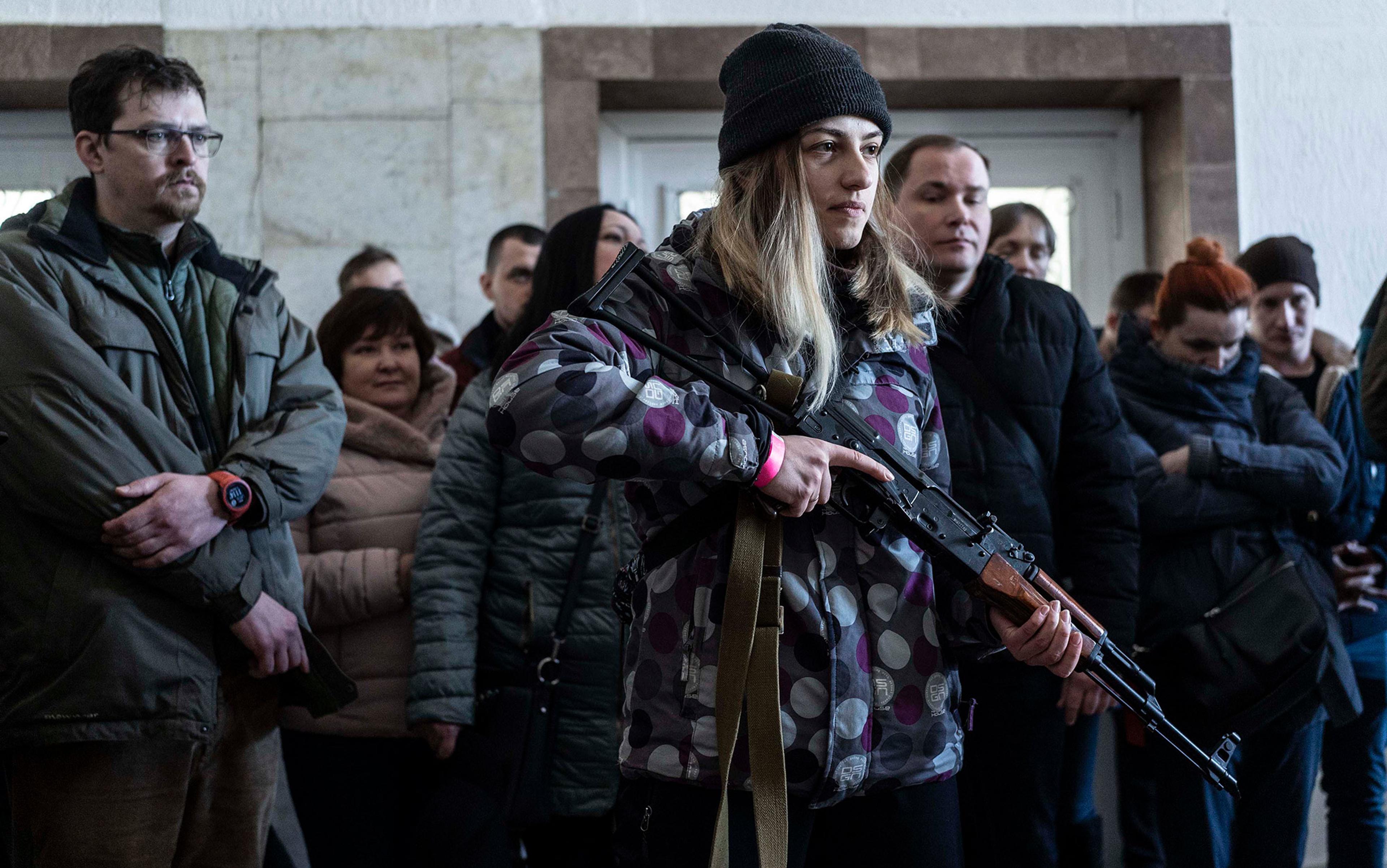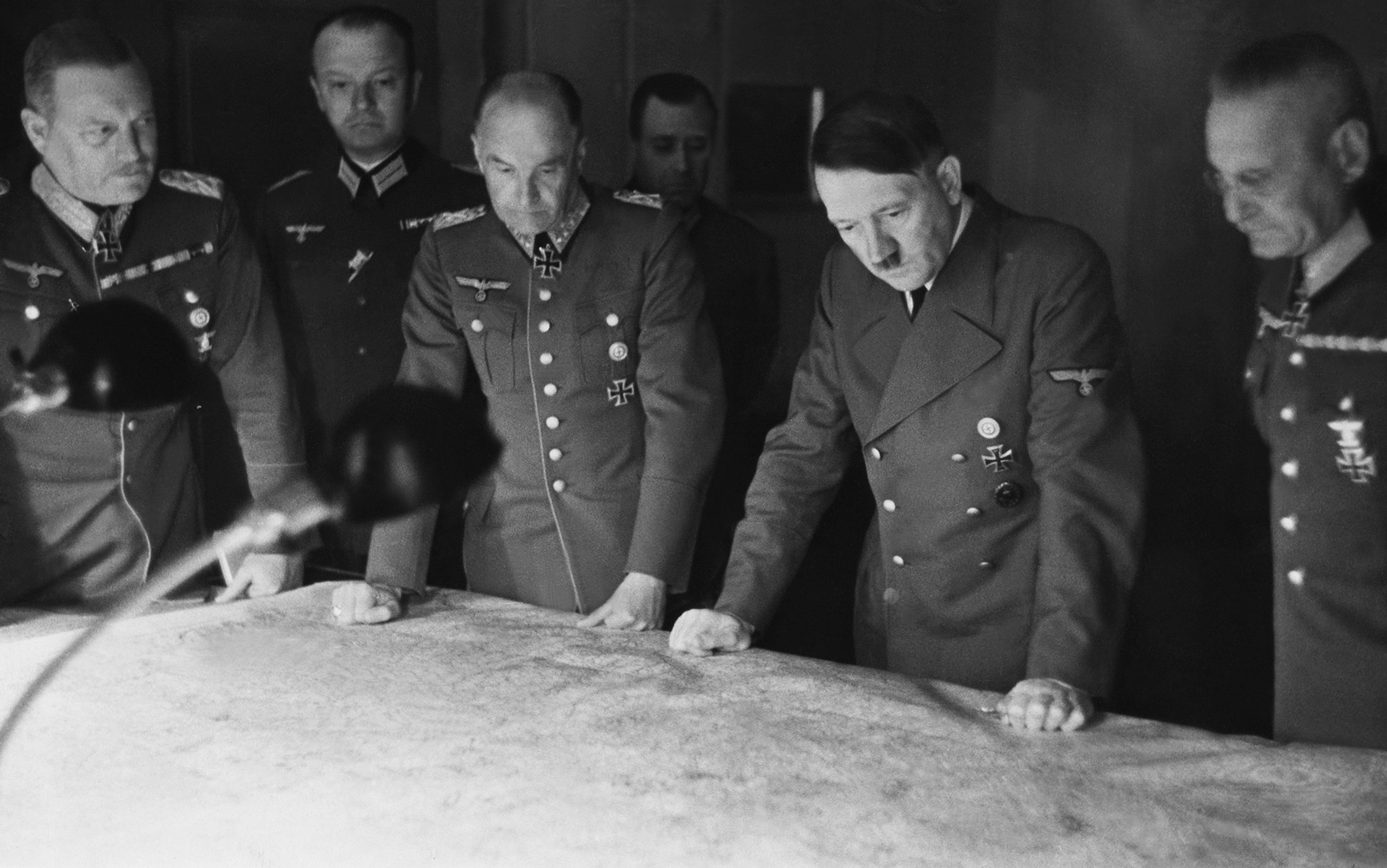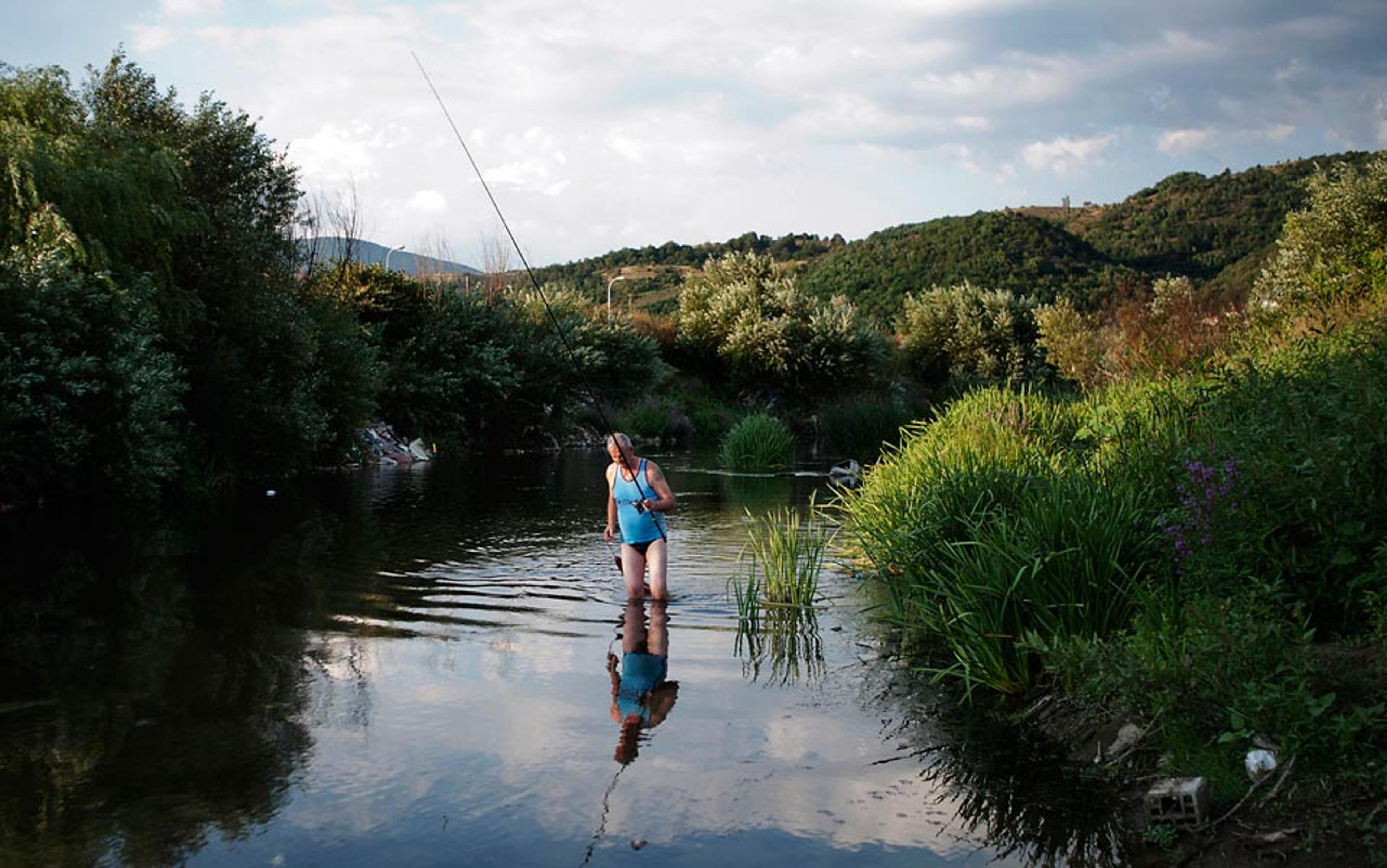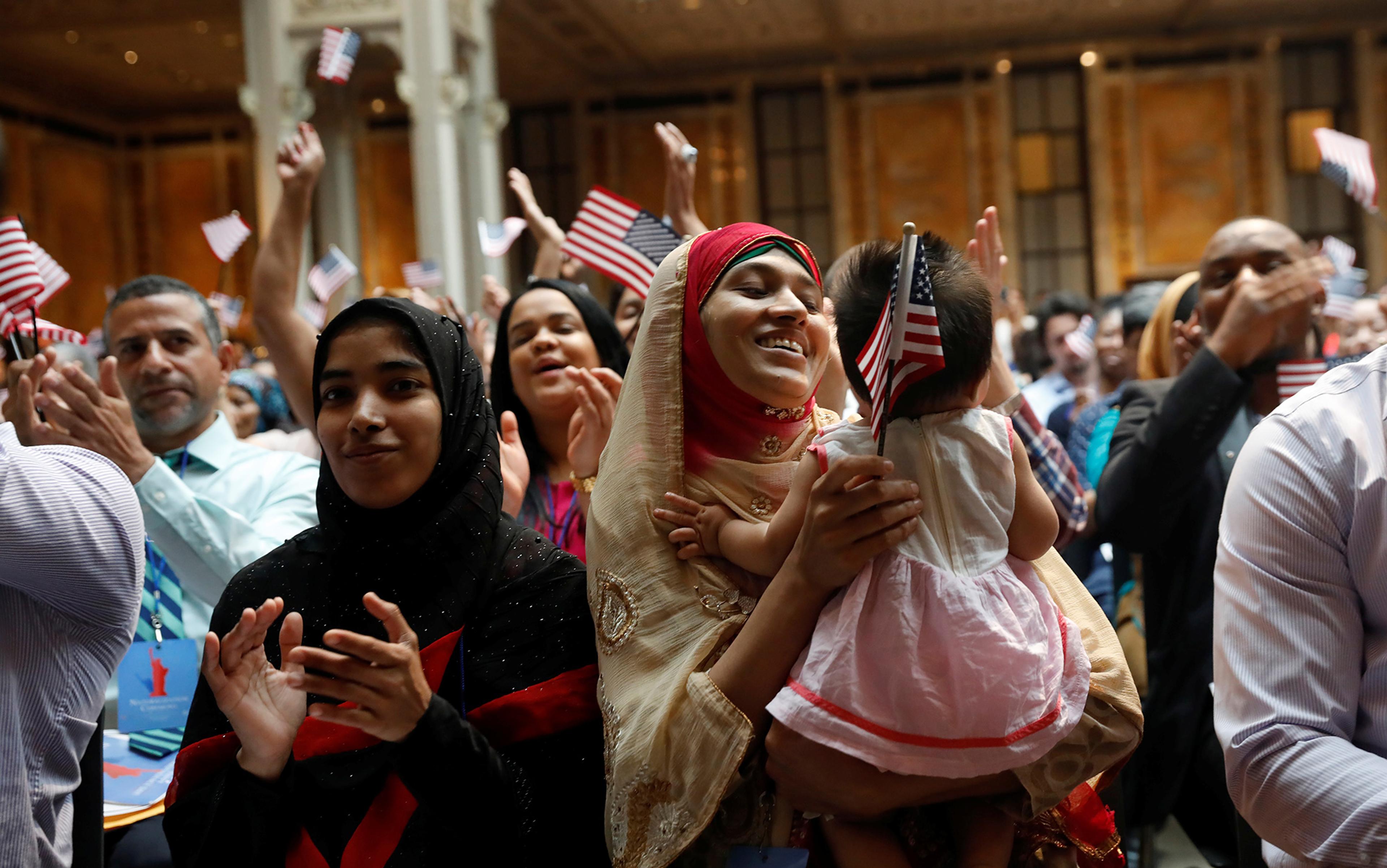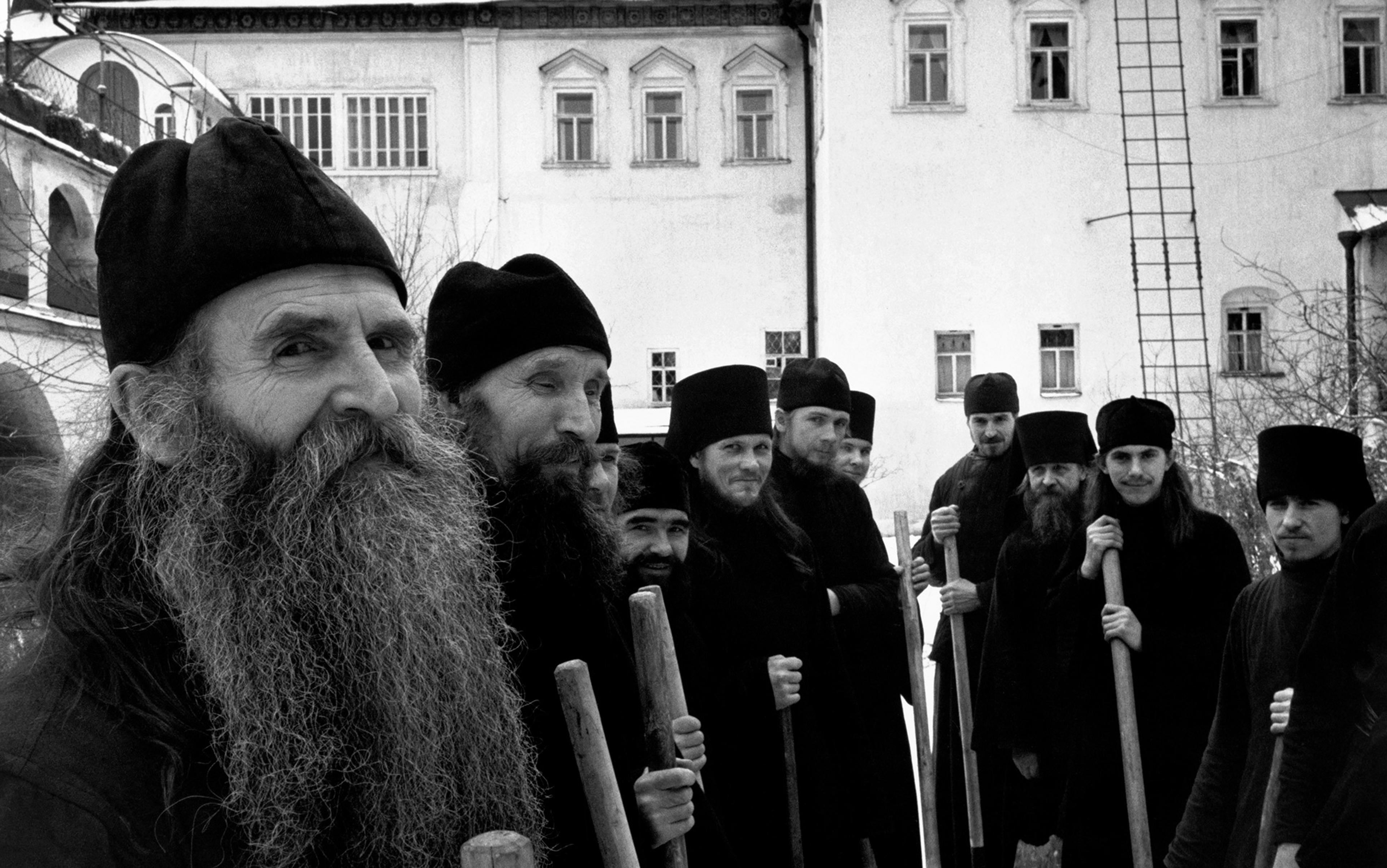When Russia annexed Crimea in March, American policymakers were taken by surprise. They shouldn’t have been, argued the political theorist John J Mearsheimer in a New York Times op-ed. After all: ‘Mr Putin’s behaviour is motivated by the same geopolitical considerations that influence all great powers, including the United States.’
Mearsheimer is one of the leading exponents of offensive realism, the theory that international politics has always been, and will presumably remain, ‘a ruthless and dangerous business’. In the absence of a world government that could protect the weak from the strong, all states seek as much power as possible: there is no better way to ensure their own survival. So says the offensive realist.
There are, of course, other ideas in the marketplace of international relations theory (which might itself explain the general confusion over Russia’s recent activity). Liberal theories, for example, tend to downplay the quest for strategic advantage, focusing instead on such internal characteristics of states as their form of government. But, strange as it might seem, such distinctions do not make much difference on the international stage. Democracies and dictatorships appear similarly jealous of power.
So offensive realism enjoys better empirical support than other theories of international relations. At the same time, it is clear that more is at stake in international politics than naked geopolitical calculus. One limitation common to most realist theories is their assumption that states act as purely rational agents, coldly calculating the course of action that would yield the highest material advantage. In fact, state policy is often influenced by seemingly irrational considerations. No truly rational utility-maximiser could take something such as ‘national honour’ seriously, yet states frequently do.
An injection of evolutionary thinking might help to explain why. Imagine a livestock herder – a traditional Kazakh nomad or an American cattleman on the Western frontier – who lives in a stateless, anarchic society. His wealth is movable and therefore vulnerable to theft. Since there are no police and no courts, he must rely on his own efforts to protect himself, just as states must rely on themselves to ensure continued survival. In such a situation, one strategy is to maintain a reputation for extreme toughness: ‘If you mess with me, you’ll regret it.’ Potential rustlers are deterred because they know that the owner will go all-out to punish them for any transgression.
Now, on a realist view such as Mearsheimer’s, such retribution would seem irrational. It yields no immediate gain and entails significant costs. If one does it oneself, there is the risk of injury or death. If one outsources the work, a bounty must be paid. But in spite of these liabilities, the punishment strategy turns out to be the one that wins in the long run. Herdsmen who do not cultivate a tough reputation become ‘men without honour’. Eventually they lose all their herds and become extinct (indeed, that possibility is what makes this genuinely an evolutionary process, although the relevant adaptation is probably more cultural than genetic). ‘Honour’ means that your commitment to punish a thief is credible. You cannot be dissuaded by danger and you cannot be bought off. If you succumb to either temptation, you lose your credibility, and with it, the capacity to deter robbers.
The problem is that rustlers are also under pressure to cultivate tough reputations: they have to intimidate the herders and deter punishment. So we end up in a coevolutionary arms race in which everybody becomes increasingly tough. The end result is a spiral of violence in which all parties run a high risk of extermination. An apparently sensible strategy leads, in short order, to suicidal madness. This is hard to understand within the rationalist framework of offensive realism. From an evolutionary point of view, on the other hand, it seems inevitable.
When they want to investigate conflict, game theorists have long turned to the classic ‘hawk-dove’ game. ‘Doves’ are individuals who never fight. If attacked, they run away. ‘Hawks’, on the other hand, are always ready for violence and will attack anybody who has something that they want. In a country populated by meek doves, the hawk strategy does very well. But as hawks become more numerous at the expense of doves, they spend more and more time fighting and killing each other.
There is, however, a simple modification of the hawk strategy that is superior to both hawks and doves: playing ‘bourgeois’. First, you declare a resource item – a herd, a piece of cropland – as your private property (hence the ‘bourgeois’ designation). Then you signal that you are willing to defend it no matter what it takes. Again, this is not rational in the narrow sense. You must be willing to escalate conflicts to the point where your life is at stake, even though your life is worth incomparably more than the disputed property. But again, in evolutionary terms, the strategy is a winner. While the hawks overreach, getting embroiled in self-destructive conflict, the bourgeois steadily divide the spoils among themselves, fighting only to defend their property against hawks. In the long run, the bourgeois always replace the hawks.
What does this mean for the seeming irrationality of states? Well, typically, they fight over territory. Land supports a population, which provides the state with taxes and army recruits. It can also have strategic value, if it allows the state to project power or control a choke point. And, of course, states are essentially territorial entities: without land, they are nothing.
States often behave in an opportunistic manner, grabbing real estate when they can and giving it up when the cost of holding it becomes too great. In 1732, Russia returned a large chunk of Persian territory that Peter the Great had conquered in the previous decade. In return, the Persians entered an alliance with the Russians against the Ottoman Empire. This kind of behaviour is well-described by realism. However, most states, historical and modern, also put some territory into a special category, one that is not subject to rational geopolitical calculation. Such land is ‘sacred’. It must be held at all costs.
Here we find an obvious manifestation of the bourgeois strategy in the hawk-dove game. States and populations that are willing to escalate conflict as far as necessary in defence of their sacred lands are more likely to persist in the international arena. Those that treat their core territory in a rational manner – forfeiting it in accordance with strategic imperatives, as, for example, several Germanic tribes did repeatedly during the Migration Period – get wiped out. As a result, we observe the coevolution of geopolitics and what the anthropologist Scott Atran has identified as ‘sacred values’. Geopolitical assets acquire an aura of sanctity.
the siege of Sevastopol remains only slightly less resonant for Russians than the Siege of Leningrad. But it is climbing the rankings
We can trace this coevolution in specific historical examples. Consider the Crimean city of Sevastopol, home to the Russian Black Sea Fleet. Initially this port was just a convenient naval base that allowed Russia to project power into the surrounding region. Because of this geopolitical value, the city played a key role during the Crimean War of 1853-1856, when Russia fought Britain and France for the right to expand into the waning Ottoman Empire. This first ‘heroic defence’ of Sevastopol left a significant imprint on Russia’s collective psyche; not least Leo Tolstoy’s important early work, Sevastopol Sketches (1855).
The second ‘heroic defence’ of the port came in 1941-42, during the war against Nazi Germany. Indeed, the siege of Sevastopol remains only slightly less resonant for Russians than the more famous Siege of Leningrad. But it is climbing the rankings. In the midst of the present conflict, Russia designated Sevastopol a city of federal significance, a status it shares only with Moscow and St Petersburg, the city formerly known as Leningrad. As we watch, Sevastopol is being woven ever more tightly into Russia’s national mythology.
If Crimea is so precious, one might wonder why Russia ever let it go. The simple answer is that it didn’t mean to. In 1954, the Soviet leader Nikita Khrushchev transferred it to Ukraine as an essentially symbolic gesture. Ukraine was then a Soviet imperial possession, so this seemed an innocuous arrangement. Then, when the Soviet Union collapsed in 1991, Russia itself started fragmenting. Chechnya achieved de facto independence. In a more peaceful fashion, Tatarstan was acquiring greater autonomy. There was talk of the Far East seceding. Crimea, in short, was not the priority.
Such periods of disintegration generally end in one of two ways. Russia rallied. During the 1990s and 2000s, it gradually squeezed out its pro-Western liberal elite, though not before they had almost halved GDP, created extreme differentials of wealth, and lost Russia its Great Power status. With the liberals in disgrace, a new, nationalistic cadre seized the moment. Under Vladimir Putin’s leadership, Russia began to claw back its lost lands, beginning, in 1999, with the reconquest of Chechnya. And now here we are.
Politicians and the general public have a tendency to overestimate the role of individuals in history. Presumably that’s why, when Russia annexed Crimea, much of the debate in the US press revolved around the personal motivations of Putin. In reality, however, individual statesmen have a limited ability to affect international relations, which are primarily driven by geopolitical and sociocultural forces. Putin is an important player, no doubt, but only insofar as he reflects the values and goals of his support groups in Russia: his inner circle, a broader coalition of the elites that back him, and, no less importantly, the general population.
All parties represented in the Duma (Russian Parliament) are solidly behind Putin. In the Duma vote, 445 votes were for the annexation with only one against. It was hardly surprising that Putin’s party, United Russia, supported him. But the other three parties, Just Russia, the Liberal Democrats and even the Communists, were also solidly behind him. That is less usual.
Even more importantly, the general population overwhelmingly supports Putin on this issue. In a large sociological study that polled almost 50,000 Russians, more than 90 per cent said that they wanted Crimea to become part of Russia. Only 5 per cent were opposed. Putin’s policy of ‘reunification with Crimea’ is extremely popular. His approval ratings soared from an already high 60 per cent to 76 per cent. Sociologists such as Alexander Oslon, of the Public Opinion Foundation, and Olga Kryshtanovskaya, who studies Russian elites, say they have never before seen such a degree of unity on any issue in Russia.
I grew up in Russia, and I was very struck – in a way that no US commentator appears to have been – at how insistently Putin’s annexation speech of March 18 drew upon Russia’s systems of shared meaning. Early in his speech, Putin reminded his audience that Crimea was where Saint Vladimir was baptised in the 10th century. It was he, as Grand Prince Vladimir, who converted Russia to Christianity, thus laying the foundations of the Russian civilisation. Putin also referred to the bones of Russian soldiers, buried all across the peninsula. ‘All these places are sacred to us,’ he said.
the thought of NATO boots on Sevastopol’s hallowed soil is intolerable to many Russians
In another little-noticed part of his address, Putin evoked the image of NATO establishing a naval base in Sevastopol should Crimea slip out of Russian control. There is a suspicion among Russian policymakers that the real motive of the US in detaching Ukraine from Russia is to expel the Black Sea Fleet from Sevastopol and replace it with a NATO military base. It doesn’t matter whether this is really the US goal; what matters is that the thought of NATO boots on Sevastopol’s hallowed soil is intolerable to many Russians. As Putin remarked: ‘I simply cannot imagine that we would travel to Sevastopol to visit NATO sailors.’
Germany’s chancellor Angela Merkel is said to have claimed that Putin ‘lives in another world’. She is right. Putin’s world is the Russian cultural space, which is quite different from the western Europe in which Merkel now operates. ‘Putin has done what our hearts were longing for,’ a Crimean pensioner told the news agency Reuters. ‘This finally brings things back to what they should be after all those years. For me, for my family, there can be no bigger joy, for us this is sacred.’
What – or who – gives a nation its sacred values? I have spoken about their ‘evolution’ as if these values were the product of an entirely blind process, almost like biological adaptations. A moment’s reflection should tell us that, in fact, they emerge from political discussions within each nation. It is natural to wonder, then, whether powerful interests cannot steer those discussions towards certain desired ends. If they can, aren’t these so-called ‘sacred’ values really just the inventions of manipulative elites?
In a sense, that’s exactly what they are. Yet the process as a whole remains a matter of blind evolution, in which no party can be certain of the outcome. Suppose a particular interest group – a band of ideological entrepreneurs – were to introduce an ideological ‘meme’ into the public discourse (think of Cato the Elder’s catchphrase, ‘Carthage must be destroyed’). These memes compete against others. Some become popular and are internalised by a majority of the population; others remain niche preoccupations or fall by the wayside altogether. In time, popular memes come to exert an influence over the behaviour of the state. Then natural selection, acting through international conflict, eliminates those states that have internalised ‘bad’ memes.
states in which the elites and the general population share the same bedrock values will be more effective in the international arena
This is a long-term dynamic involving multiple generations. In the short term, it’s true that ruling elites can whip up nationalistic fervour. External events (an attack, for example) can trigger it. But it still depends on the existence of certain bedrock attitudes that have evolved over many years. That means it isn’t always the elites who manipulate the wider population; popular attitudes also constrain elite choices and actions. And this suggests a further corollary: states in which the elites and the general population share the same bedrock values will tend to be much more effective in the international arena, committing to their course without demur.
Judging by the polls, Putin and his people are of one mind over Crimea. As I write this essay, it seems that little short of an all-out war, risking the use of nuclear weapons, could dislodge Russia’s grip from the peninsula. Not even the most punitive economic sanctions would do the job: by their nature, sacred values trump material considerations, which is what makes conflicts over sacred values so intractable. Consider the case of Jerusalem: the Temple Mount is sacred both to Jews and to Muslims, and neither is willing to give it up. Luckily, the Crimean case is different. Crimea is not sacred for the Americans or western Europeans. It is scarcely more so for the Ukrainians.
There are broader implications to this evolutionary theory of international relations. Realist political scientists such as Mearsheimer are surely correct that the US should recognise the natural geopolitical concerns of other nations. But we also need to go beyond realism. States are not moved by hard geopolitical facts alone: they are also swayed by less tangible considerations of national honour and sacred values. Sometimes they fight. Sometimes they back down. If we are to choose our battles wisely, we must understand what such decisions rest upon.
